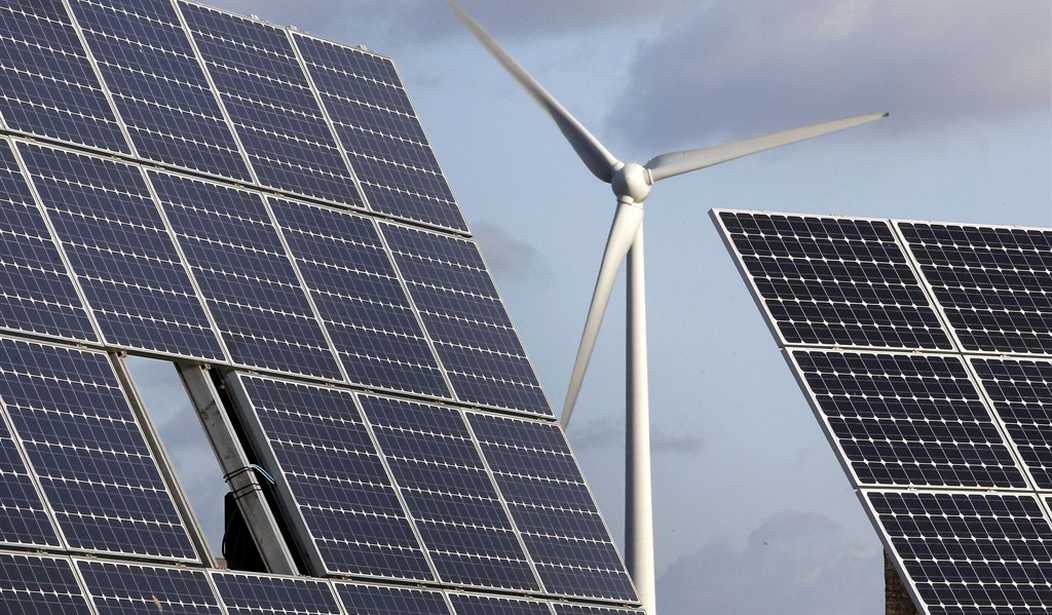Editor's note: This column was authored by Shane Otten.
On June 29, President Obama met with Canadian Prime Minister Justin Trudeau and Mexican President Enrique Peña Nieto at the North American Leaders Summit in Ottowa — popularly known in the press as the “Three Amigos” summit. Climate change and clean energy were among the major topics discussed, and the meeting resulted in an agreement to have 50 percent of all energy production in North America come from renewable power by 2025.
Many world leaders and average citizens believe that unregulated markets have caused a global ecological crisis and government intervention is the only solution. According to Pew Research, a global median of 78 percent of people support governments limiting greenhouse gas emissions through an international agreement. However, these government policies are often flawed and increase inequality.
There is concern that an unregulated energy policy will not only harm the environment, but also hurt long-term global economic growth. A 2013 report from the Intergovernmental Panel on Climate Change (IPCC) states the effects of climate change need to be limited to eradicate poverty. But this same report shows that if government regulations were put in place to allow global temperatures to rise two degrees Celsius by 2100, the compliance costs would result in a loss 4.8 percent of global gross domestic product—a considerable number. Even IPCC, which strongly advocates for environmental controls, shows that energy regulations have a major detrimental effect on the economy.
An analysis from the Cato Institute using the report’s own data, shows that without new regulations, the earth would warm a mere four degrees celsius and climate change damages would only cause a loss of 2.8 percent of GDP. This demonstrates that government “solutions” would cause greater damage, development would suffer, and poverty would not be reduced—the opposite of the intended goal. Further, the money saved from ignoring compliance costs could be invested in cleaner forms of energy and sustainable practices.
Recommended
We are already seeing many non-governmental organizations advocating for businesses to be more sustainable. While this is occurring, a plethora of businesses, such as Microsoft, Google, Dell, and Siemens, are self-regulating and adopting fully-renewable energy or carbon-neutral policies without the force of government. Businesses can attract customers from among the ever-growing number of people who support sustainable organizations while at the same time benefitting the environment. These market solutions help more than flawed government regulations.
Humanity, not just economics, needs to be considered in this conversation. Policymakers have to be wary about the timeline of mandates against fossil fuels and subsidies for renewables. Fossil fuels, especially in developing nations, are far cheaper than renewable energy sources. While there are many reports, mainly from European countries, claiming renewable energy is cheaper than fossil fuels, this is only due to government regulations and subsidies that distort the market. Mandates that rush the change to clean power hurt those that need cheap energy the most.
The World Bank states that the poor are less likely to have access to energy and will remain poor without access to energy. In China, coal plants produce electricity at a rate of $44 per megawatt. By comparison, wind power costs $77 and solar costs $109 per megawatt. If China were to switch to renewable energy, costs would almost double, which would have a detrimental impact on its economy and people. The rich would be able to afford the price changes, but the 150 million Chinese living in poverty would continue to suffer. The problem of high energy costs is not limited to just China. Multitudes of people in the Americas, Africa, and Europe would suffer under higher energy prices, furthering the chasm between the rich and poor.
In the United States, regulation on fossil fuels have hurt some of the nation’s poorest areas. Although structural and market force have played a role, the coal industry in central Appalachia has been unnecessarily burdened by EPA regulations. Thousands of jobs have already been lost and putting further restrictions on energy use will do nothing to help those who are already struggling.
To demonstrate effective policy, energy costs in Mexico have been falling due to the government opening up oil and gas reserves and its electricity market to foreign investors. This has attracted manufacturers to Mexico, benefiting the economy. If the government were to limit access to cheap energy, this much needed growth would be stunted.
Allowing renewables to come to wide use when it makes economic sense is the optimal solution for the sake of humanity and the environment. Society has come to value stewardship and sustainability, which the market is adapting to. Even if market solutions cannot save the planet, it offers a far better chance than the critically flawed government.
Shane Otten is a rising senior at the University of Wisconsin-Whitewater studying economics and international business.

























Join the conversation as a VIP Member